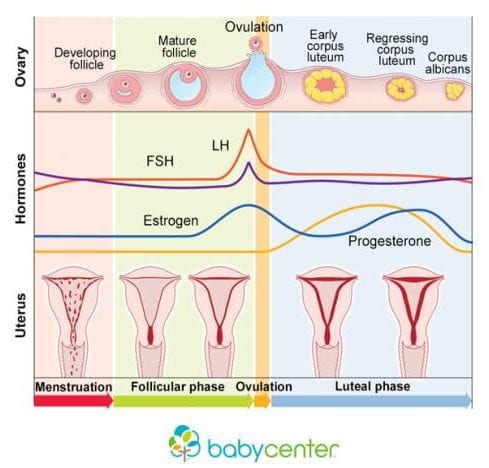Today I was thinking about periods.
I wondered how many men take an extra step to understand what’s happening when the women in their lives are menstruating. Every woman gets a period (mothers, sisters, aunts, best friends, girlfriends) and it might be nice to know what’s going on when you see them crying and eating chocolate. I feel like it’s more natural for women to be curious because it happens in their own bodies every month and it’s a bit hard to ignore the pains coming from the ovaries and uterus. Men will never understand the kind of pain, pressure, stress, and emotion the cycle causes, but they can definitely understand what’s going on biologically, which might make a woman’s situation a bit more relatable. I’m using this blog as a quick FYI for anyone interested in what happens inside a woman’s body when she’s menstruating.
To begin, biologically, a woman is born with all the eggs she will ever produce/have for the rest of her life. The eggs are only able to be fertilized from the time a woman gets her first period to the time she has her last. The menstrual cycle’s purpose is to prepare a woman’s body to be pregnant by producing many hormonal/physical changes and maturing a single egg to ~possibly~ be fertilized by a sperm.
I like to compare it to parents creating a nursery in preparation for their child to be born. A woman’s body is preparing the uterus to develop a child then, when the egg is not fertilized, it destroys all the hard work just to do it all over again in a month. It is also important to understand that this cycle is constantly happening. The thing women refer to as their “period” is only one phase of the cycle.
There are four phases of the menstrual cycle: menstruation, the follicular phase, ovulation, and the luteal phase.
Menstruation
In this phase, the body thins the uterine lining. In other words, the lining of the uterus (endometrium) is super thick during other phases to have a better chance for a fertilized egg to attach to the uterus. However, this is the aggressive phase that sheds all that thickened lining in a bloody rage. The menstrual fluid that results, exits through the vagina for 3-7 days and contains blood, cells from the lining of the uterus, and mucus.
Follicular Phase
This phase starts on the first day of menstruation. A hormone called follicle stimulating hormone FSH is released from the pituitary gland (tiny part of the brain). The hormone causes ovaries to produce 5-20 little follicles that bead on the surface and each hold an immature egg. (side note: all the eggs in a woman’s body are not “ready” to be fertilized and are considered “immature” until the body makes certain chemical and hormonal changes to produce a mature egg that is ready to be fertilized) Usually, only one immature egg from the follicles will mature and the others will die. While the follicles are growing, the uterine lining is stimulated to once again thicken in preparation for a mature egg to attach.
Ovulation
In this phase, the egg that has matured is released to travel through the fallopian tube to the uterus to wait for fertilization. This phase happens about two weeks before menstruation (the “period”). This entire phase requires many hormones that I won’t directly mention to make the explanation a bit easier. But check out the chart below. There are TONS of hormones flowing through a woman’s body for everything to happen. On average, the egg will only wait around for 24 hours to meet up with a sperm and then it will die.
Luteal Phase
When the matured egg leaves the follicle, the ruptured follicle (over the course of about 2 weeks) turns into something called corpus luteum. This new structure releases hormones that cause the uterine lining to thicken and wait for a fertilized egg to attach (implant). If an egg does attach, many other hormones are released to maintain thickness for the growing egg. If an egg does not attach, the corpus luteum dies and no longer releases hormones for thickening which causes the uterine wall to start shedding… this is known as menstruation. The process starts all over.
Disclaimer: I did not mention many minor details that would be cool to research for an even better understanding. However, I think this was my best explanation of the cycle!
Thanks for reading! I hope you learned something and share a good conversation about the menstrual cycle.



Bryel,
Thank you for the most wholesome blog about periods I have ever read! I agree that I think it is important for men to understand what women go through during their periods or even the science behind it. I think it is absolutely insane that it is socially acceptable for women to have to pretend like they are not affected by their periods. I find myself at work sometimes wishing all I could do was lay down with a heating pack and yet I had/have to constantly “put on a smile” and do the same thing everyone else is doing and sometimes even more. I wish society would let women be honest with how they were feeling while on their periods without ridicule. The old saying “are you on your period”. Sometimes yes we are and sometimes we cannot help how our bodies make us feel! Anyways thanks for doing such needed work!